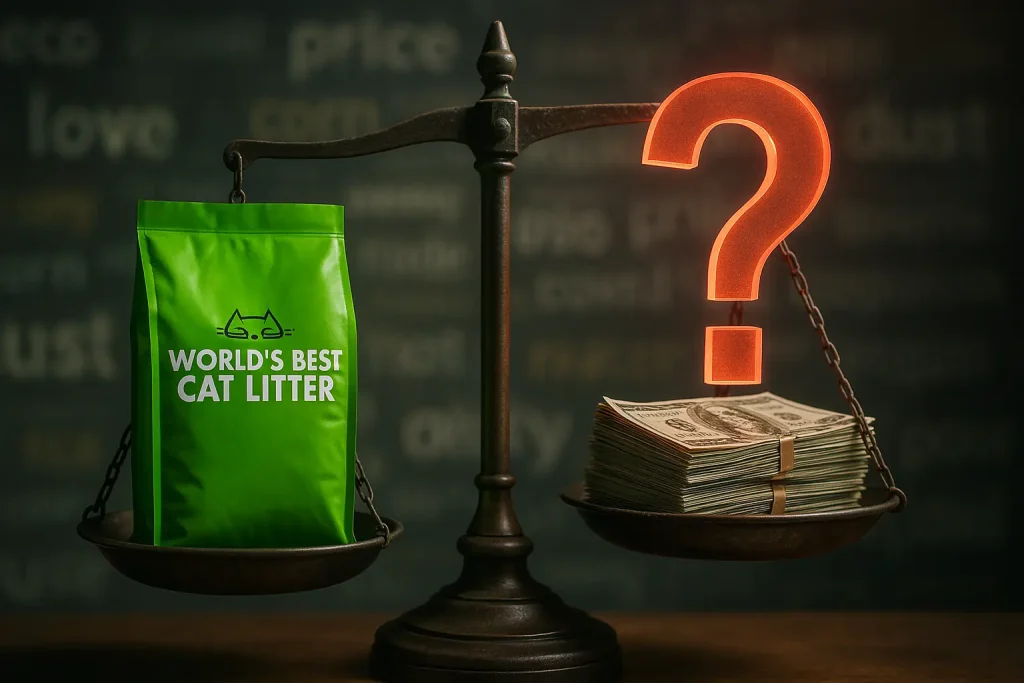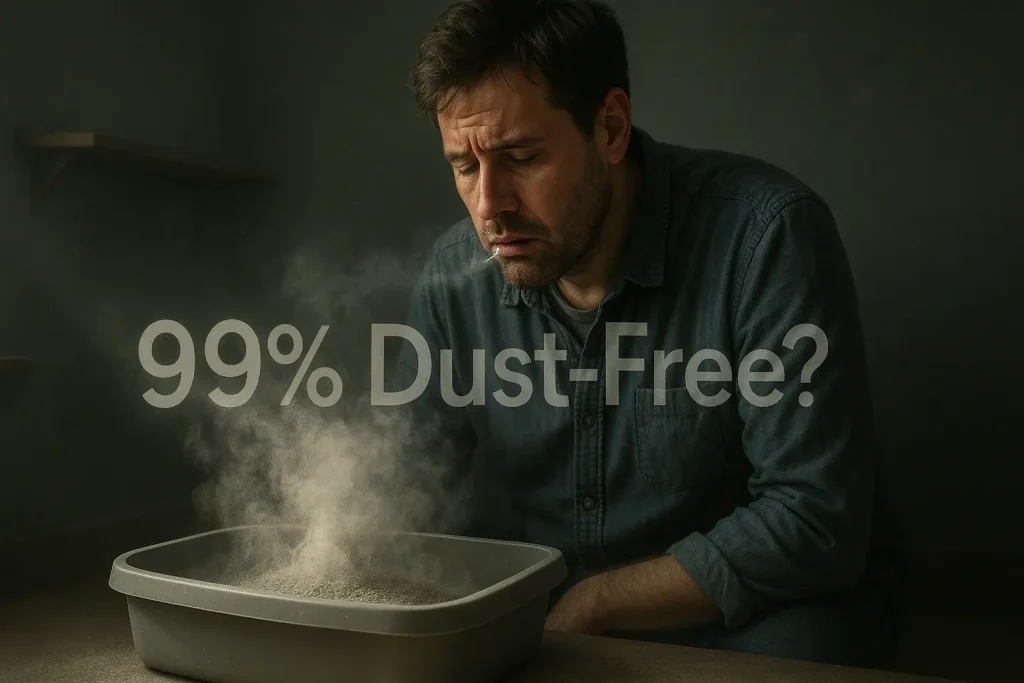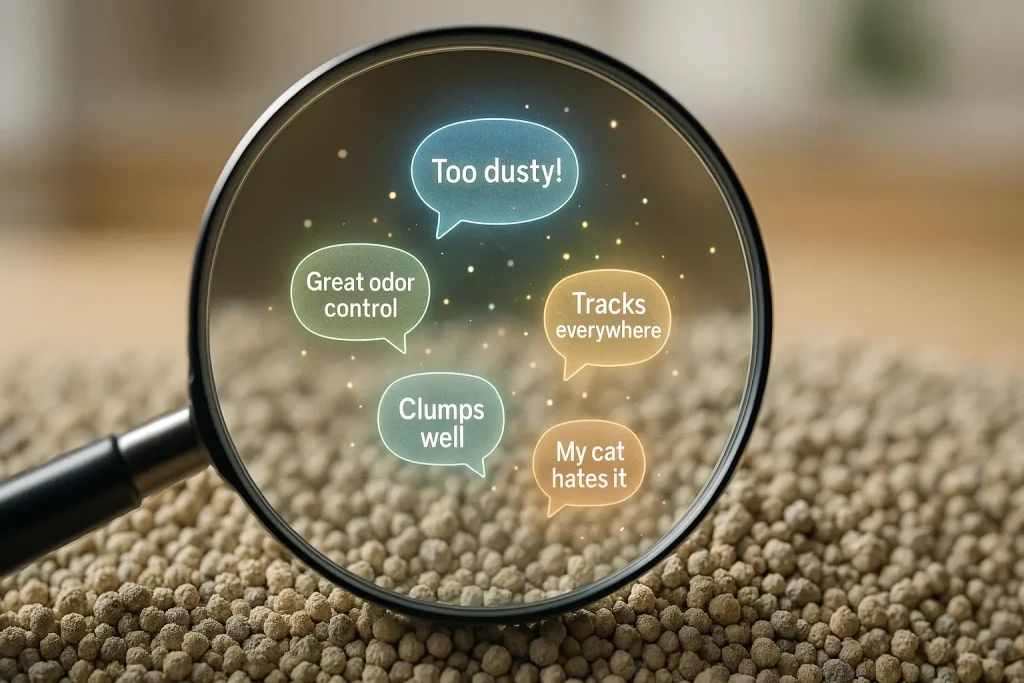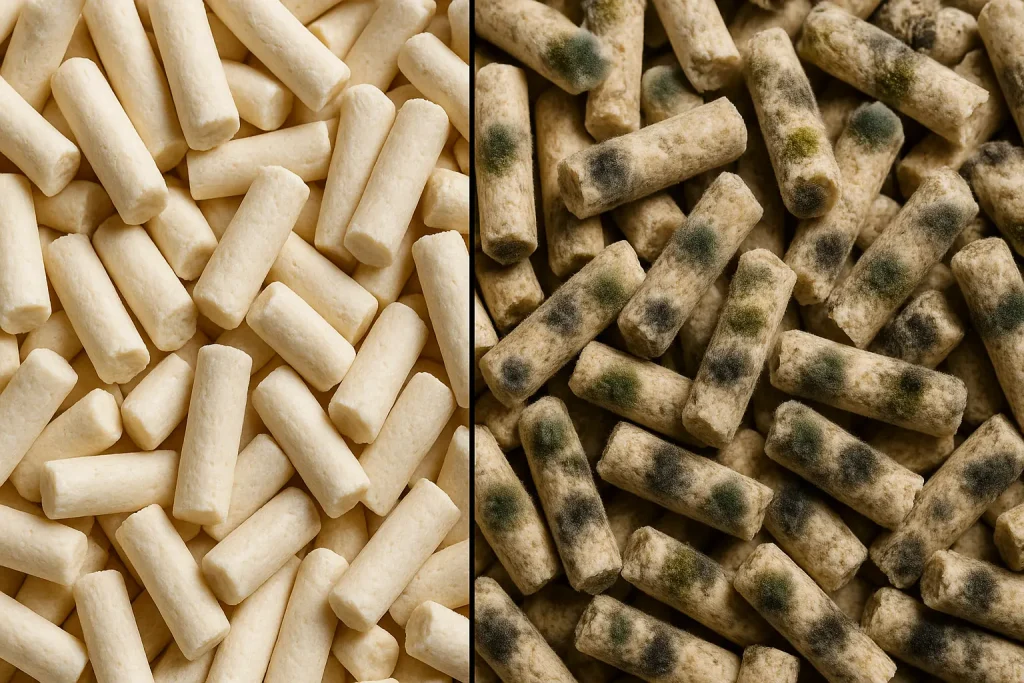The Great Sniff Divide: Your Nose vs. Your Cat's Super-Powered Olfactory World
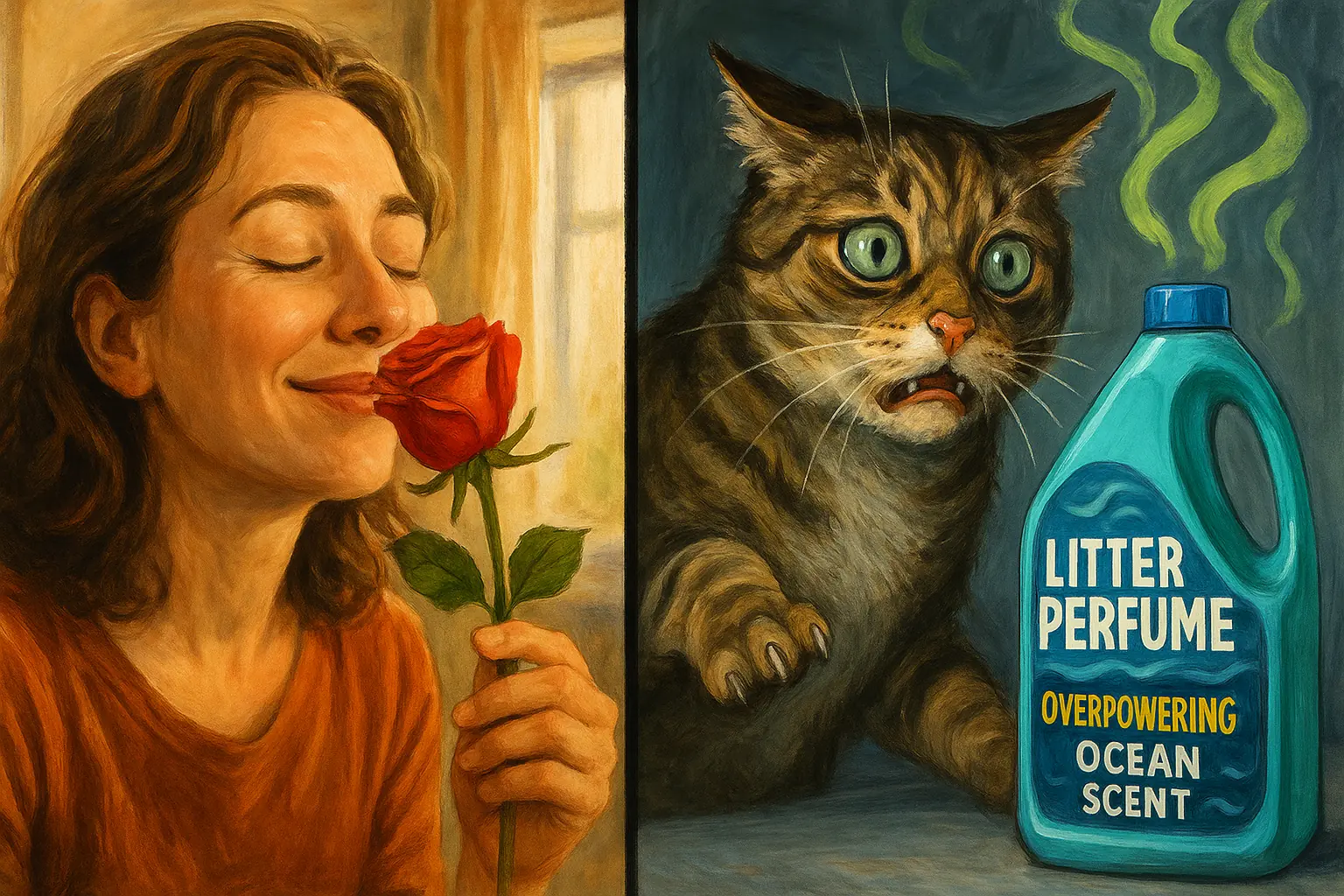
Humans often choose litter scents. They base choices on their own preferences. This completely misses feline reality. Cats possess vastly superior olfactory systems. Their scent world differs immensely. Picture this scenario, a tale countless owners share through online reviews and forums: you joyfully unbag that new 'Ocean Breeze' litter. Its aroma delights your human nose. Your cat? One sniff. A hard stare. Then, your expensive Persian rug becomes the new toilet. Sound familiar? That's the scent divide in stark action, a pattern Cat Litter Hub's analysis of user experiences consistently reveals.
What smells like 'Spring Meadow' or 'Fresh Linen' to a human nose can be an overwhelming chemical assault to a cat. It's true. Their highly sensitive systems perceive these artificial fragrances very differently. User reports frequently describe cats sneezing near heavily perfumed litters. Some owners observe watery eyes. Many cats, according to these accounts, simply refuse the scented box entirely. The collective experience of cat parents indicates a clear problem with strong, artificial scents.
This fundamental disconnect in scent perception is a primary, yet often unrecognized, root cause. It fuels many litter box problems reported by users. Sudden litter box aversion is a common complaint. User forums and product reviews detail these struggles extensively. Our synthesis of this widespread feedback consistently links strong artificial scents to cats rejecting their litter trays. A simple misunderstanding about scent creates significant stress. For cats. For their humans.
Here's an unspoken truth, a distinct pattern emerging from our deep dive into user feedback. Many litter scents are primarily designed to appeal to human purchasers. Not to feline users. This marketing focus, as highlighted in numerous user complaints, often comes at the expense of cat comfort and well-being. The cat's actual needs, particularly their olfactory sensitivities, frequently get lost. This is a critical insight gleaned from listening to what cat owners themselves are saying.
"But It Smells So Good!" – The Scented Litter Trap (UGC Confessions & Consequences)
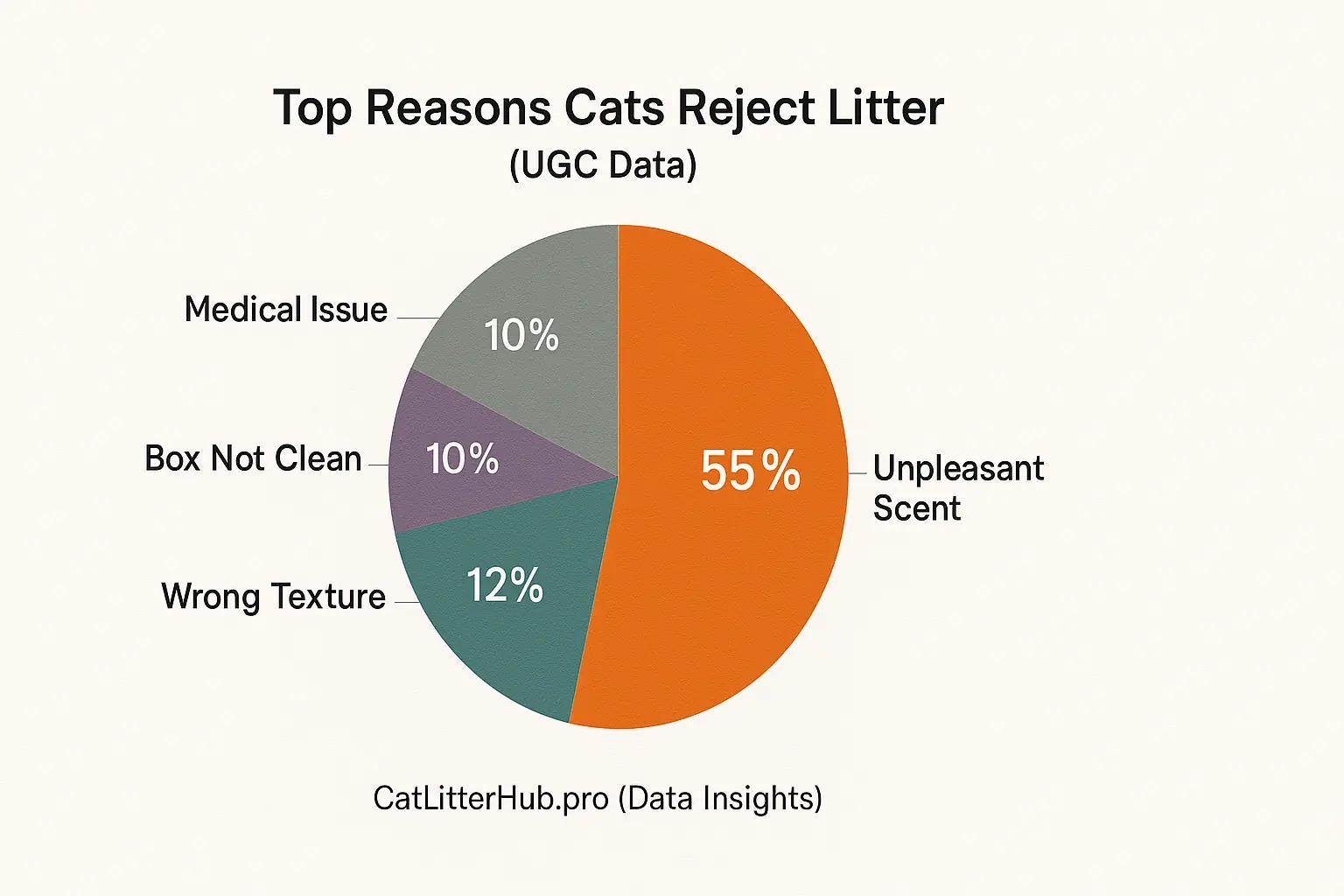
"I just couldn't stand that 'catty' smell," one owner confessed online. "So I bought the strongest 'Mountain Fresh' litter I could find." The unfortunate result? Their cat started leaving deposits right next to the litter box. This story is a common refrain in user discussions. Many cat parents, by their own admission, pick scented litters primarily for their own olfactory comfort, not fully considering their cat's highly sensitive nose. This is the heart of the scented litter trap.
Marketing claims about scented litters often promise long-lasting freshness. Think "7-day odor lock." User reviews frequently tell a different story. These promises often crumble in real-world, multi-cat households. Numerous complaints detail how the artificial perfume either fades quickly or, worse, mingles unpleasantly with urine and feces. This can create an even more offensive odor than the original waste. The dream of a fragrant home backfires.
A sudden refusal to use the litter box is a major red flag. Owners frequently share stories where this behavior starts immediately after a switch to a new, heavily scented litter. Imagine this: Cat Fluffy was perfectly box-trained for years. Then, her owner introduced a "delightful lavender-scented" variety. Suddenly, accidents started appearing in hidden corners. Cats often communicate their displeasure quite clearly. Their aversion to strong artificial fragrances is a powerful instinct.
The unspoken truth emerging from thousands of user experiences is stark. Strong, artificial chemical fragrances in litter are a significant feline aversion trigger. Manufacturers rarely highlight this risk. Yet, cat owners consistently lament the stress and behavioral problems these scents can cause. Well-meaning attempts to create a pleasant-smelling home can inadvertently make the litter box a place of anxiety for our feline companions.
The Unscented Revolution: Why "No Scent" is Often the Best Scent for Cats (and You!)
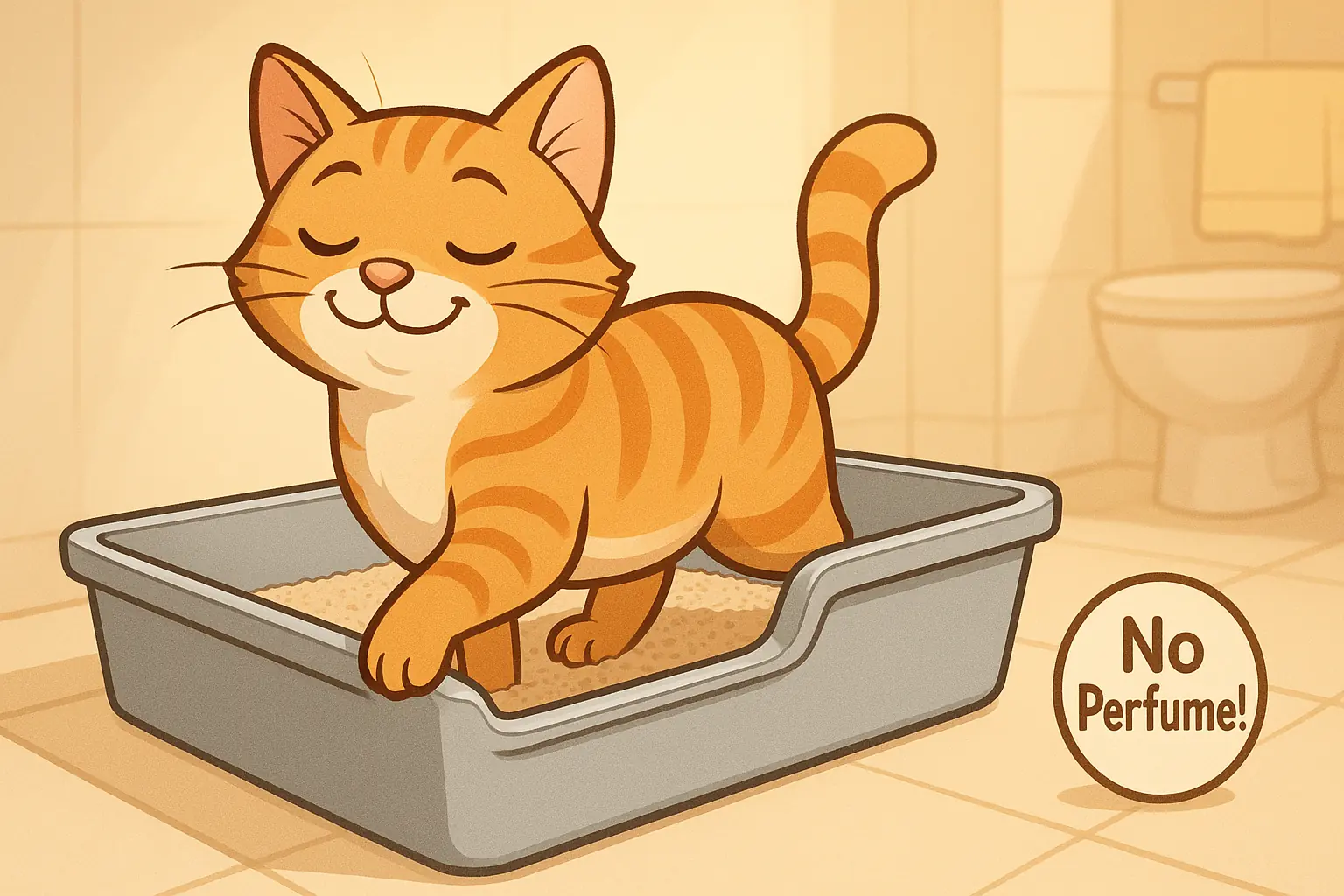
The vast majority of user feedback confirms a clear feline preference. Cats strongly favor unscented litters. "After months of accidents, I switched to a basic, unscented clay. Night and day! Mittens started using the box perfectly again," shared one relieved owner. This story echoes thousands of similar accounts we've analyzed. Plain is often best for your cat.
Unscented litter respects your cat's powerful sense of smell. Cats use scent for crucial communication. They mark territory within their litter box environment. Artificial perfumes can overwhelm their delicate noses, creating stress. This olfactory assault often leads to litter box avoidance, a common frustration for owners.
A surprising practical benefit emerges from unscented choices. Unscented litter helps you monitor your cat's health. Changes in urine odor, a key health indicator, are not masked by chemical fragrances. This subtle clue can signal early health problems. Early detection saves lives.
Many users initially believe scented litter means a cleaner box. (Our analysis explores the myth of scent equaling cleanliness more deeply.) True odor control, however, comes from diligent scooping and effective litter material. High-quality unscented options neutralize smells at their source. The 'unspoken truth' many users discover? A meticulously clean, unscented box has virtually no offensive odor. This simple realization delights countless cat owners.
The Febreze Factor & Other Perfume Pitfalls: When "Fresh" Scents Go Wrong (UGC Warnings)
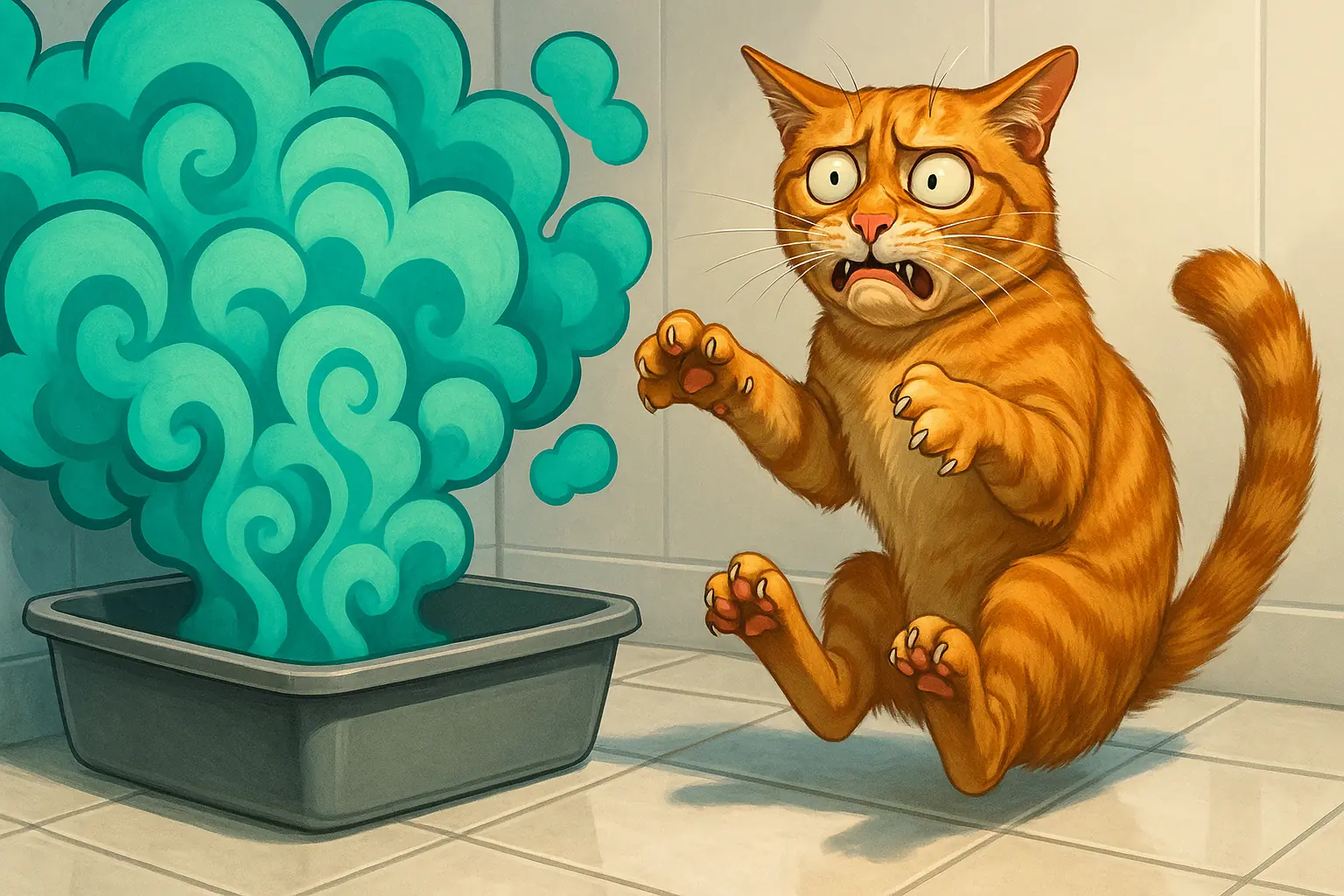
Brands like Fresh Step heavily infuse their litters with Febreze. Marketing promises a perpetually fresh-smelling home. But what do cats think? User experiences paint a very different picture. Many cat owners find these heavily perfumed litters highly polarizing. Countless reviews detail strong feline aversion, even when humans initially appreciate the aroma.
"My cat treated the Febreze litter like it was lava!" one owner shared online. This sentiment echoes through numerous user forums. The 'Febreze dilemma', as seen in UGC, highlights a core issue. These products often seem designed more for human olfactory preferences than for feline comfort or acceptance. Cats frequently vote with their paws. They just avoid it.
A significant pattern emerges from analyzing thousands of owner posts. If a cat litter requires overpowering perfumes, its ability to genuinely neutralize odors might be lacking. The fragrance could simply be masking underlying smells. This questions the product's core effectiveness. Real odor elimination is what users seek. Not just a cover-up.
Furthermore, user communities voice concerns about potential respiratory irritation. Sensitive cats sometimes react poorly to constant exposure to potent chemical fragrances. Some reviews even mention human household members experiencing discomfort. This "fresh scent" can come with an unexpected cost to well-being, according to these shared experiences.
Related Insight: Do Different Cat Breeds Have Litter Scent Preferences? (UGC Speculation & Behavioral Clues)
Cat owners sometimes notice varied scent reactions. These observations often spark discussions about potential breed-specific litter scent preferences among cats. Individual feline choice always rules, of course.
Our analysis of community discussions uncovers intriguing anecdotes suggesting some breeds might show more scent sensitivity. Think Siamese discernment. Or Maine Coon tolerance. Exploring these user-reported patterns could offer deeper insights for your specific breed, a fascinating area we are investigating further.

